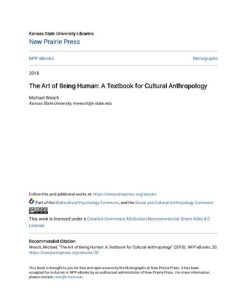Psychology as the Science of Human Being The Yokohama Manifesto 1st Edition by Jaan Valsiner, Giuseppina Marsico, Nandita Chaudhary, Tatsuya Sato, Virginia Dazzani 3319210940 9783319210940
$50.00 Original price was: $50.00.$25.00Current price is: $25.00.
Psychology as the Science of Human Being The Yokohama Manifesto 1st Edition by Jaan Valsiner, Giuseppina Marsico, Nandita Chaudhary, Tatsuya Sato, Virginia Dazzani – Ebook PDF Instant Download/DeliveryISBN: 3319210940, 9783319210940
Full download Psychology as the Science of Human Being The Yokohama Manifesto 1st Edition after payment.

Product details:
ISBN-10 : 3319210940
ISBN-13 : 9783319210940
Author: Jaan Valsiner, Giuseppina Marsico, Nandita Chaudhary, Tatsuya Sato, Virginia Dazzani
This book brings together a group of scholars from around the world who view psychology as the science of human ways of being. Being refers to the process of existing – through construction of the human world – here, rather than to an ontological state. This collection includes work that has the goal to establish the newly developed area of cultural psychology as the science of specifically human ways of existence. It comes as a next step after the “behaviorist turn” that has dominated psychology over most of the 20th century, and like its successor in the form of “cognitivism”, kept psychology away from addressing issues of specifically human ways of relating with their worlds. Such linking takes place through intentional human actions: through the creation of complex tools for living, entertainment, and work.
Psychology as the Science of Human Being The Yokohama Manifesto 1st Table of contents:
Part IThe Knowing of Being Human
1 Psychology as a Normative Science
Reasons and Causes, Actions and Behaviors
Bios and Zoe
Psychological Phenomena Are Being Done by Persons
Doing Grief and Patienthood
Doing Habitual Life
Normativity and Affordances
Doing Anger
Aboutness, Oughtness, and the Person
Psychological Phenomena Are Conversational
Three Conclusions
References
2 Psychology as a Phenomenological Science
Historical Reconstruction of Psychology as a Phenomenological Science
Departing from the Phenomena: Gestalt Theory
Introspection: The Würzburg School
The Point of Departure: From Brentano to Husserl
Worlds We Live and Persons We Encounter
Kurt Lewin’s War Landscapes
Martha Muchow’s Life Space of the Child
Life Space of the Urban Child (“der Lebensraum des Gro00DFstadtkindes”)
Gustav Ichheiser’s Image of the Other Man
The Image of the Other Man
Conclusion
References
3 Cultural Psychology of Desire
The Dynamic of Sensemaking
Presentation
The World as Neg-Form
Constraints Make Possibilities
The Micro-Dynamic of Presentation
The Field Nature of the Presentation
Semiotic Scenario
Desire as the Engine of Sensemaking
Bivalence of Meaning
The Performative Valence of Sensemaking
Desire as Pertinentization
Implications and Perspectives
References
4 The Centrality of Aesthetics for Psychology: Sciences and Arts United Through Poetic Instants
Understanding Forms and Structures: The Multiplicity of Meaning in Gestalt
The Paradox of the Whole and the Almost Forgotten Notion of the “Aestheticological”
An Aestheticological Approach to Form
The Aesthetic Experience of Poetic Instants
Metaphors for Verticality: The Tree and the House
Conclusions
Acknowledgments
References
5 Memory and Creativity: Historical and Conceptual Intersections
Memory in Antiquity: From Divinities to Inscription
The Ancient and Medieval Art(S) of Memory
From Renaissance to (Late) Modernity: The Dawn of `Creativity’
Memory and Creativity in the Age of Reproduction
`Creative’ Approaches to Memory in twentieth-Century Psychology
Creativity and Memory in Contemporary Psychology
Concluding Remarks
References
Part IIMarking Signs—Creating Ourselves:The Realities of Imagination
6 Affective Semiosis: Philosophical Links to Cultural Psychology
Peirce on Consciousness and Signs
Turning to Affective Semiosis: On Thresholds of Sense
Lessons from Langer
What Is Constantly Upsetting the Balance?
Conclusion
References
7 The Self Rises Up from Lived Experiences: A Micro-Semiotic Analysis of the Unfolding of Trajectori
Self, Agency, and Ethics
Self-Consciousness Going to and fro Through the Looking Glass
Semiotics of Experience
Semiotic Mediation and Trajectories of Experience
A Micro-semiotic Model of the Development of Experiences and the Rising up of the Self
First Alterity: Reaction to Novelty in the Environment
Second Alterity: Representation of Phenomena and Objects
Third Alterities: Positioning
Fourth Alterity: Actuation as a Semiotized Object and a Sign of the Self
Self-Government and Will: A Consequence of the Rising Up of the Self
The Self and the Agent Navigating in the Landscape of Experiences
References
8 Studying Higher Mental Functions: The Example of Imagination
Imagination as Sociocultural Phenomena
Studying Imagination: Observation, Introspection, and AutoEthnography
Case Studies
Projective Tests
Dream Laboratory Studies
Introspection
Autoanalysis
Autoethnography
Observation
Everyday Life Enquiry
What Now?
Perspectives in Methodology
From Imagination to Higher Psychological Functions
Studying Imagination
Studying Higher Mental Functions
References
9 What Imagination Can Teach Us About Higher Mental Functions
The Orthodontics of Mind
Imagination: Short History of a Concept
The Partial Rehabilitation of Imagination
Imagination as Simulation
Imagination as Higher Mental Function
Conclusions
Acknowledgment
References
10 Variety of Love: Multiverses in a Localism Aesthetic
The Meanings of Love
Care and Desire
Contemporary Passionate Love
Passionate Love and Fraternal Love
Equality and Legitimacy in the Post-Industrial Couple
Passionate Love as a Co-Construction of Weness
Passionate Love: Reduction, Generalization, and Localism
The Multiverses of Love and Ways of Coexistence
Particularity and Multiverses
A Crucible of Multiverses
Plenitude, Unicity, and Hypergeneralization in Passionate Love
Weness in Time
Temporality and Boundaries in the Love Encounter
Passionate Love and Semiotic Generalization
Embodied Passionate Love
Passionate Love as an Aesthetic Experience: A Ceremony of Freedom and Determinism
General Conclusions: Bhatki as a Recursive Hypergeneralization
References
Part IIIValues and Ways of Human Being
11 Religion and Religiosity as Cultural Phenomena: From Ontological Reductionism to Acknowledgment o
From `the’ Psychology of Religion to Psychologies of Religions
Progress in Psychological Thinking About Religion?
The Plural Program in the Psychologies of Religions
The Indispensable Contribution of Cultural Psychologies
References
12 Understanding Human Being Within the Framework of William Stern’s Critical Personalism: Teleology
Some Central Tenets of Critical Personalism
Teleology
Psychophysical Neutrality
Persons, Things, and the Goal-Directedness of Human Being
Critical Personalism as Humanism
Rogers on Personal Freedom
On the Compatibility of Critical Personalism and Phenomenology
Conclusion
References
13 Values and Their Ways of Guiding the Psyche
Human Motivation from a Cultural Perspective
The Mutual Construction of Cultural Practices and Semiotic Fields from a Developmental Dynamic Syste
Human Development from a Systemic Viewpoint
Beyond Language and the Redefinition of Semiosis. The Fundamental Power of Affect, or Affectivity, O
Affective-Semiotic Regulation of Psychological Processes
The Individual as a Complex Dynamic Developmental System: Dialogical Self-System
Affective-Semiotic Fields as Primary Hypergeneralized Signs Lying at the Emergence of Values
The Intricate Interplay Between Values, Ruptures, and DDS Development
The Big Quest: Psychology, Values, and the Way Ahead
References
14 Obscuring Cannibalism in Civilization: Amerindian Psychology in Reading Today’s Sociocultural Phe
Author–Aesthetical Object–Cultural Field
Friction Between Europeans and Peoples of Latin America
Cannibalism and Philosophical Notions of Alterity
Dialogical Understanding of the Jaguar Cibern00E9tico Tetralogy
Final Thoughts
Acknowledgments
References
15 Bridging Micro, Meso, and Macro Processes in Social Psychology
Social Representation, Identity, and Action
Symbols and Identity: The Islamic Veil and the Confederate Flag
Human Rights and Duties
Concluding Thoughts
References
Part IVHuman Being as a Generalizing MeaningCreator
16 On Abstraction, Generalization, and Theoretical Constructions
References
17 Otherness is Everywhere to Bring About Your Self: An Inquiry into the Whimsical Emergence of Chil
School Education, Meaning Construction, and Children’s Selves
The Self as Meaning Construction
A Remaining Problem: Self as a Coincidental Bricolage?
Everyday Environments as the Source of Otherness
Otherness Appearing in Irreversible Time
Conclusion
References
18 Exploring the Workings of the Psyche: Metatheoretical and Methodological Foundations
The Transdisciplinary Philosophy-of-Science Paradigm for Research on Individuals (TPS-Paradigm)
Three Metatheoretical Properties that Determine the Phenomena’s Perceptibility by Individuals
Different Kinds of Phenomena and Basic Principles of Phenomenon–Methodology Matching
What Is the Psyche?
Perceptibility by Individuals: Extroquestive Versus Introquestive Methods
Differences to Introspection Versus Extrospection
Psychophysics Relies on Extroquestion but not on Introquestion
Differences to First-Person Versus Third-Person Perspective Methods
Indirect Exploration of Psychical Phenomena Through Individuals’ Behavioural and Semiotic Externalis
Behaviours—The Essential Bridge from the Individual’s Psyche to His or Her External Surroundings
Semiotic Representations: Composite Kinds of Phenomena That Are Both Internal and External to Indivi
What to Externalise—Challenges to Be Considered
When to Externalise—Temporal Requirements
Where to Externalise—Requirements of Retrieval Situations
How to Externalise—Risks for Biases Introduced by the Methods Used
Intersubjective Interpretation of Externalisations and Inferences to the Psychical Phenomena Under S
Summary
Acknowledgments
References
Part VCreating Future Horizons
19 Psychological and Social Borders: Regulating Relationships
Development as a Qualitative Structural Transformation of Borders
Parts and Wholes
Borders and Causal Explanation: The Catalytic Process
Concluding Remarks
References
20 Education: The Process of Becoming
Psychology as a Human Science
Psychology, Sign, Self, and Agency
Signs and Ways of Making Worlds
A Cultural Psychology Perspective on Education
Boyhood and Educational Agency
Agency and Psychology
Becoming a Human Being
Educational Agency
Final Considerations
References
21 Narrative Psychology as Science and as Art
Introduction: Narrative Psychology and the Meaning of Science
The Beginning: Time, Narrative, and the Story of Development
The Middle: Rewriting the Story of the Self
The Ending (?): Poetic Science and Beyond
People also search for Psychology as the Science of Human Being The Yokohama Manifesto 1st:
psychology as the science of human being
as the general science of human behavior psychology
psychology is defined by as the science of human activities
what is the science of human behavior
who said psychology is the science of human behaviour
Tags: Psychology, the Science, Human Being, The Yokohama Manifesto, Jaan Valsiner, Giuseppina Marsico, Nandita Chaudhary, Tatsuya Sato, Virginia Dazzani
You may also like…
Relationships & Lifestyle - Psychological Self-Help
Psychology - Developmental Psychology
Positive Psychology The Science of Wellbeing and Human Strengths 3rd Edition Alan Carr
Politics & Philosophy - Anthropology
Psychology - Social Psychology
Politics & Philosophy - Anthropology
Relationships & Lifestyle - Psychological Self-Help
Relationships & Lifestyle - Diet & Nutrition
Politics & Philosophy
Cultural realities of being abstract ideas within everyday lives Valsiner












